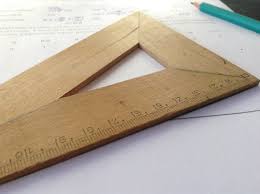Structural engineers design, evaluate and calculate the strength, stability, and rigidity of structures. Structural engineering is a specialty within the field of civil engineering. It is a structural engineer's job to make sure a structure is safe and will be able to handle the forces and loads it may encounter. Structural engineers work with architects, contractors and other engineering professionals.
What Do Structural Engineers Do?
Structural engineers design and analyze structures such as buildings, bridges, tunnels and oil rigs. They test designs for accuracy and performance with computer programs and models. Structural engineers also develop construction budgets, evaluate materials, monitor construction and make sure projects are meeting the appropriate codes and regulations. In addition, structural engineers evaluate existing structures for structural integrity and recommend repairs or changes.
A structural engineer may be involved with new or existing residential buildings, commercial projects, home purchase inspections, storm damage, and additional structural needs.
Where Do Structural Engineers Work?
 Most structural engineers work for construction or engineering consulting firms or for contractors. Consultants focus on designing structures and tend to work in an office environment. Contractors spend the majority of their time on site where they oversee the construction of a structure.
Most structural engineers work for construction or engineering consulting firms or for contractors. Consultants focus on designing structures and tend to work in an office environment. Contractors spend the majority of their time on site where they oversee the construction of a structure.
Structural engineers usually specialize in a particular industry, such as buildings or bridges. This allows them to be familiar with the challenges and requirements specific to their area of expertise.
How To Become A Structural Engineer
To do this job, you will need a bachelors degree in structural or civil engineering. The college should be accredited by ABET. A PE Certification and a masters degree may be required for advanced positions in the field.


 necessary to obtain a PE. If you do not become a PE you can not sign off on engineering drawings and calculations. In some other engineering disciplines such as Chemical Engineering, it is not as necessary to have a PE to work in the field. Overall, obtaining a PE is a valuable designation to achieve as any engineer.
necessary to obtain a PE. If you do not become a PE you can not sign off on engineering drawings and calculations. In some other engineering disciplines such as Chemical Engineering, it is not as necessary to have a PE to work in the field. Overall, obtaining a PE is a valuable designation to achieve as any engineer.
 example, many schools have mechanical engineering programs, but only a few have civil engineering programs. After the major is determined, then other criteria needs to be factored in. These include, large or small school, preferred geographic location and of course the student's grades and test scores. Taking all of these factors into account will help to narrow down which colleges to start looking at. In short, all schools are not a perfect fit for all students, but considering your student's needs is the start to find the correct engineering college for them.
example, many schools have mechanical engineering programs, but only a few have civil engineering programs. After the major is determined, then other criteria needs to be factored in. These include, large or small school, preferred geographic location and of course the student's grades and test scores. Taking all of these factors into account will help to narrow down which colleges to start looking at. In short, all schools are not a perfect fit for all students, but considering your student's needs is the start to find the correct engineering college for them.